“Novak is just stronger than everybody else” – Exclusive interview with Goran Ivanisevic
Just over a week after Novak Djokovic’s title in Melbourne, his coach Goran Ivanisevic shares the background of the “sweetest victory“ amidst all the pressure his charge was facing and proclaims him one of the mentally toughest athletes in the world.
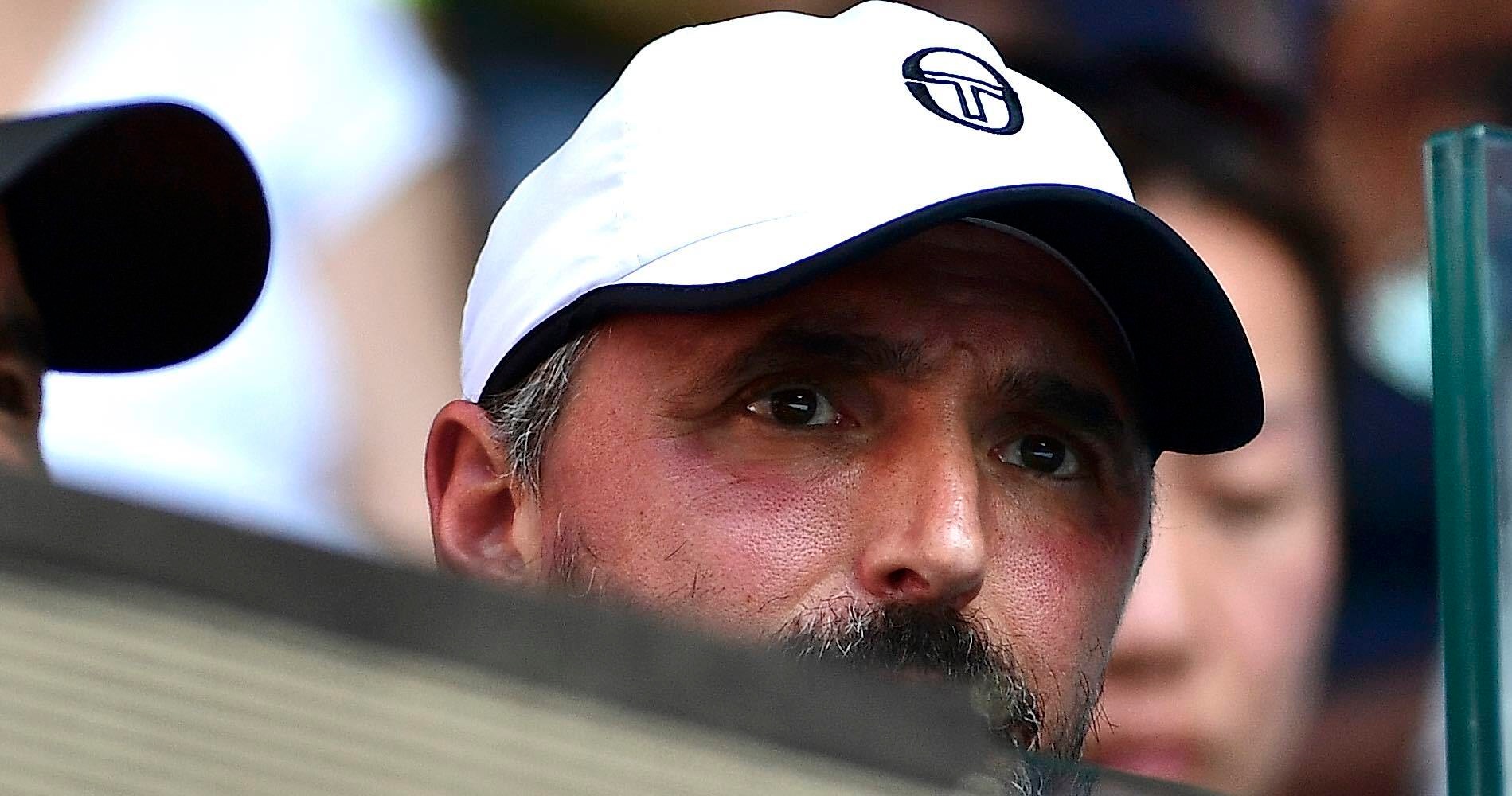 Australian open – Goran Ivanisevic coach Milos Raonic – Croatie
Australian open – Goran Ivanisevic coach Milos Raonic – Croatie
It was a bumpy and unorthodox road, but the outcome was familiar – Novak Djokovic as Australian Open champion, for the ninth time. A lot happened before and during the tournament, so it took a few days for everyone involved to gather their thoughts and reflect on the first major of the season.
Goran Ivanisevic has been working with Djokovic since Wimbledon 2019, but during that tournament he was there only for the first week and does not count himself as a contributor to that particular title.
“Oh, but this one I count,” he said after Djokovic beat Dominic Thiem in the 2020 Australian Open final.
And he counts this one, of course. In an interview with Tennis Majors, Ivanisevic explains why he thinks the 2021 Australian Open 2021 is one of the most valuable in Djokovic’s career. He also comments on Djokovic’s improved serve, his recovery process during the tournament because of his oblique muscle injury, calendar for the rest of the year (and career), his mental fortitude, a potential rematch with Rafael Nadal in Paris, and Roger Federer’s comeback.
‘The Texas Chainsaw Massacre – that is how some media treated Novak’
It has been a week since Novak lifted his ninth trophy in Melbourne. Now that the dust has settled, what are the biggest takeaways from this Australian Open campaign?
Personally, as a coach and as a fan of Djokovic, this title tastes the sweetest of them all. Novak would probably say Roland Garros 2016 or his first Wimbledon, but for me, after a year in which he was thrashed by some media from all disposable weapons…It feels really good. At the same time, it could turn out that this title was extremely important in the broader context (race for the most Slam titles).
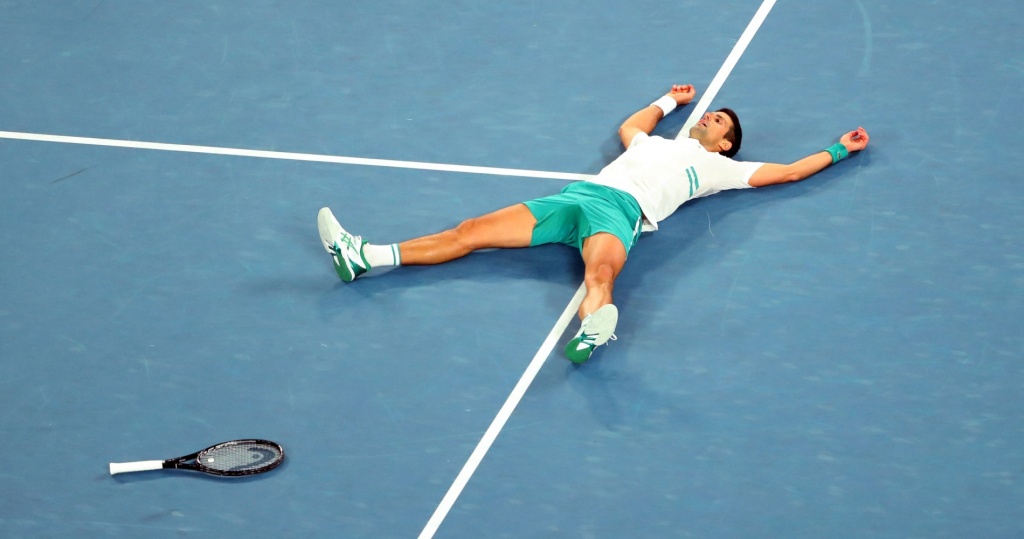
It was hectic, something we have not experienced before – 42 days in Australia, quarantine, the injury, crowd leaving in the middle of a match because of the lockdown, bleak atmosphere for a few days and then the perfect final match that Novak played from every aspect.
You just mentioned that Novak has been “thrashed” by some media for a year. During the tournament Djokovic said that his mistakes are less forgiven compared to other athletes. Why do you feel he is being treated in the media in that way?
Everything started with the Adria Tour; they were after him even before that, but in the last year it seemed to me as if I am watching that film The Texas Chainsaw Massacre (laughs). Why is he being treated that way? Probably because of his background, people from Balkans are always looked at differently; also, Novak is not afraid to speak his mind and to fight for causes he believes in. What happened at the US Open, it was as if everyone was glad because that kind of shit happened to him. In Australia he stood up for his fellow players and again – let’s kick Djokovic because he is the only one to speak up, everyone else stays silent. Throughout my career I have witnessed players doing all sorts of things, but nobody got the kind of treatment Novak does.
Then, the cherry on top… How shall I put this? The most perfidious, actually the saddest thing were accusations that he was faking an injury. Why on earth would he do that? Why would the best player in the world make up an injury, and he was up two sets to love at that point?! When some other top player is injured, it is considered a heroic act for them to even step on the court. But when it is Novak, he is faking it.
Somehow he manages to deal with all of that. And the injury occurred in the third round, it is not like the tournament was nearing its end; no, he needed four more wins, and not against some unknown players. [Milos] Raonic, then [Alexander] Zverev, [Aslan] Karatsev did not reach the semi-finals by accident, and finally [Daniil] Medvedev, who is the best in the world in the last three months. It is just amazing.
Novak is one of the mentally toughest athletes in the world
Djokovic told the media after the finals that he was spending ten hours each day in recovery and treatment. How did the whole situation unfold from your perspective?
Uli (Ulises Badio, Novak’s physio) really is a miracle worker. He managed to get him ready each and every time on the table, there were painkillers involved as well and no practice, so we did warm up a bit longer than usual. But all of that would not be worth anything if Novak was not so strong mentally. I have never met such a mental rock like him, I think he is one of the mentally toughest athletes in the world, not just tennis players. When everyone is writing him off, he somehow finds a new source of energy; I can see how much effort he puts into that and how complicated sometimes it can be.
After the injury, I was there when the doctors told him what had happened and what the risks are if he keeps playing. He was told it could get worse, but he made a conscious decision saying: “I will do whatever it takes to try to win this Slam.” We had the same ritual every day, it revolved around his treatments and in the last two matches he was able to play with minimal pain, particularly compared to the matches with Raonic and Zverev.
Novak is just stronger than everybody else and people have a hard time admitting that. His mind is so strong, he believes in his mental exercises and with those relaxation methods of his he was able to minimise the pain as much as it was physically possible, with the help of painkillers as well.
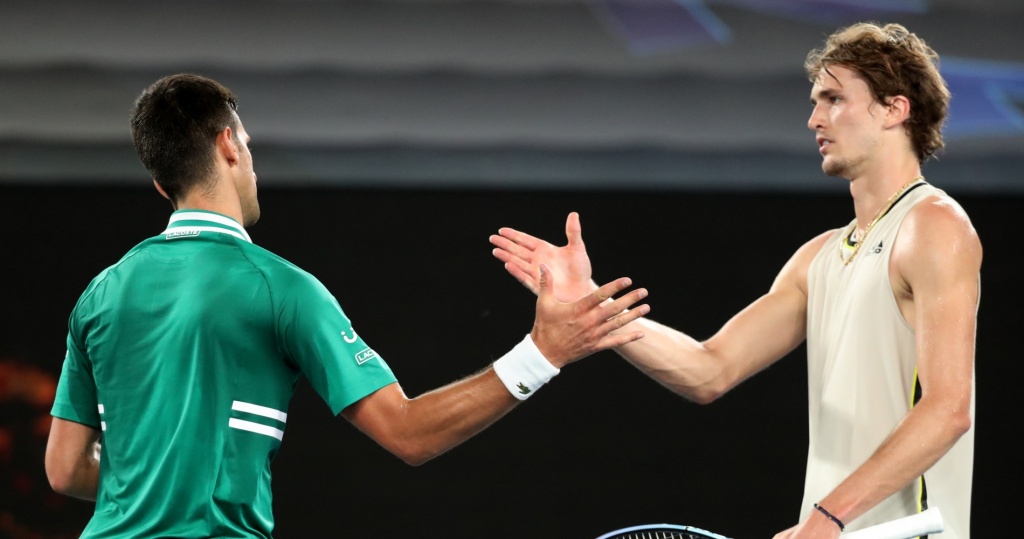
Novak was solely focused on that title from the moment he stepped foot in Australia. He has 18 now, I believe Rafa will win at least one more Roland-Garros, so it was important for Novak to keep up. The race is open and it is interesting.
What was your role during those endless rounds of treatment? How did you try to help in those extraordinary circumstances?
My role at that time was to bring a positive attitude, to keep him relaxed. We have got our board games and the goal was for Novak not to think about the injury and to start thinking about the match when the time comes – no reason to bring extra tension.
Djokovic might cut two or three more tournaments now
Now that you have mentioned the whole team, how does the communication flow between Marian Vajda and yourself look like when one of you is on site and the other one at home
Marian and I get along very well, we were friends since even before I joined the team. I feel we complement each other and we are both open to advice and hearing each other’s opinions. Of course, the messenger is always the one who is at the tournament with Novak. We go about things in a similar manner and I could not imagine a better person to work with than Marian.
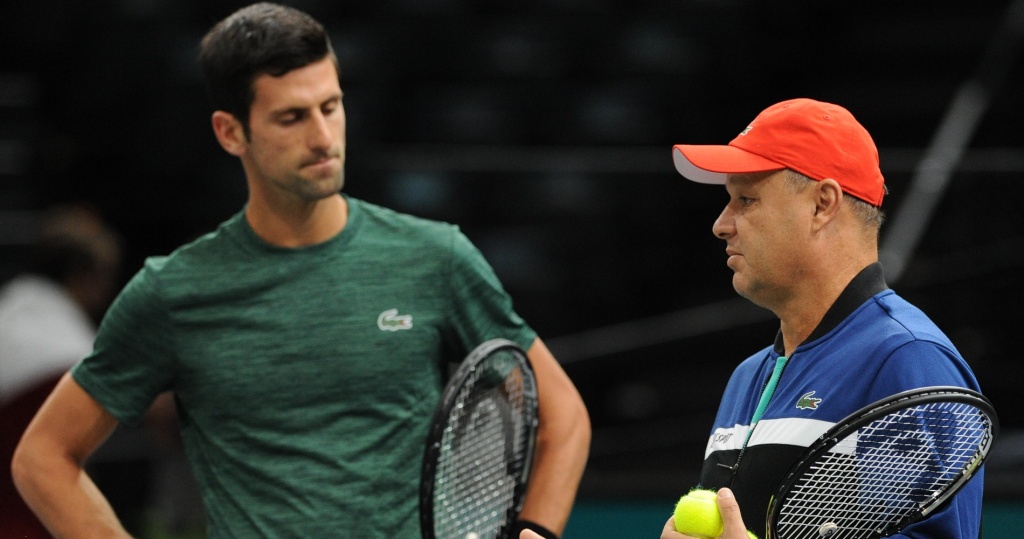
After achieving the historic number one spot (most weeks at the top of ATP rankings), Novak has said that he would play less tournaments focusing solely on majors. What do you anticipate that to look like?
If you look at his schedule in the last five or six years, it is not as if he was playing a bunch of tournaments. I do not think one can focus on Slams only since you need to have good preparation and a positive feeling going into the Slam. For instance, Novak was feeling great about himself before the Australian Open because of the two tough matches he had at the ATP Cup.
I am sure that he will play a couple of tournaments on clay before Roland-Garros, one grass tournament before Wimbledon and then there are Olympics before the US Open. We will see about indoors, but on a yearly level, he might play two or three tournaments less, which is not a significant change.
With the injury, is it realistic to say that Djokovic won’t play until the clay season begins?
It is realistic, yes. Now it depends on the injury as well, but there is no need to rush it. The only tournament that he would play is maybe Miami. I think his next MRI is in two weeks, so we will see. There is no need to take any risks, I would rather see him one hundred per cent ready for the clay season in order to try to go after the Roland-Garros title once more.
Novak needs to be ready to play for 15 hours in order to beat Rafa in Paris
Djokovic told us that he was having a lot of ups and downs mentally and emotionally after his disqualification at the US Open last year. Looking back at that time, how difficult was it for him, from your perspective?
I think people could tell how complicated things were for him during that time. What happened in New York was a shock, something that nobody saw coming, and he was possibly on his way to another Slam title. He did win the title in Rome, but the level of tennis was far from his best, and I won’t even talk about the Roland-Garros final in which he did not show up, although Nadal did play superbly.
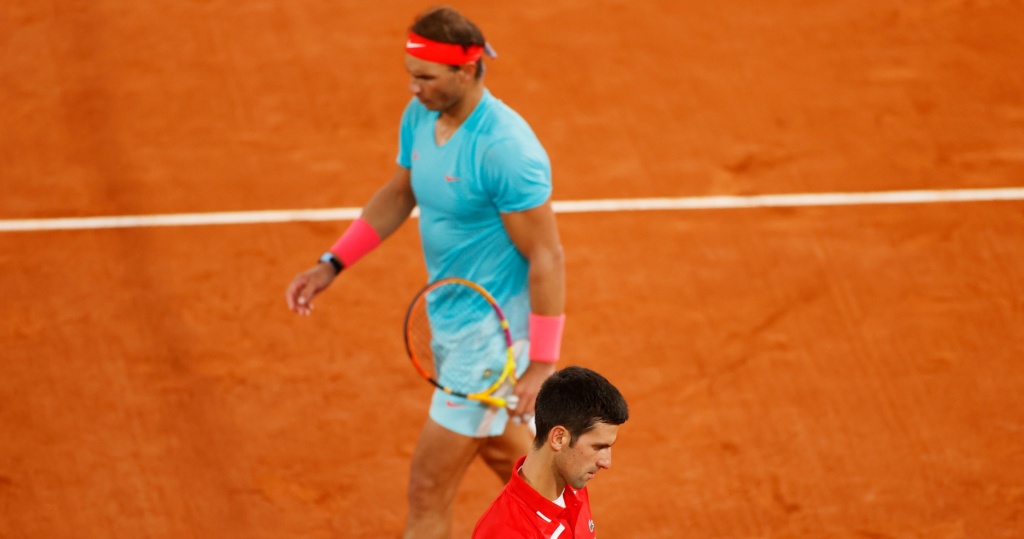
The end of the year was far from ideal as well. There were struggles within himself, he tried to fight it, but he could not shake off what had happened in such a short period of time. When we came to Australia, you could tell that he was different, determined and energised again.
The 2020 Roland-Garros final finished quickly. It is a long road ahead and there are many other challengers as well, but if Novak meets Rafa in Paris again, do you expect a closer match?
It will hardly go down the same way (laughs). To be honest, I do not think Novak could repeat it even if he wanted to. Rafa is the favourite, no doubt about that, but favourites do not always win.
Since Roland-Garros is the next big goal, which aspects of the game are you going to emphasise as a team ahead of the clay season?
First and foremost, Novak must be physically at his best, he needs to feel powerful enough to stay on the court as long as it takes. For example, in the Roland-Garros final he did not seem ready to stay on the court for fifteen hours if that is what it would have taken to beat Nadal. He was shortening points with drop shots and some other bad choices.
Against Medvedev, you could tell that he was prepared to be on that court for thirty hours if needed. That is the state Novak has to be in before that potential encounter with Nadal. When he feels that he can keep up physically, his tennis will follow.
Shorter practices, but with higher intensity
Djokovic will be 34 in May. He has stated that although he does not feel the weight of age yet, that he knows that it will be more difficult to win big titles the older he gets. How does that affect the daily routine of a player?
The key word for me is desire and Novak’s desire is huge. He might take an extra day of rest here and there. As you get older, you try to have shorter practices, but with higher intensity; that is what we pictured and what we accomplished in Australia. It turned out quite well since he was able to stay on the court for however long it takes. Also, there are a lot of things to factor in as well, things you need to adapt to such as your mood and will to practise, but the good thing about tennis is that you can get creative with the drills.
Every person has their own traits, but what did you learn working with Novak that you could apply in the future with some other player?
I have been a coach of four top players (Marin Cilic, Tomas Berdych, Milos Raonic before Djokovic), and I have my own philosophy and my own approach; I feel I have been succesful with it and I won’t change it. Of course, as a coach you need to adapt to your player, but for me the main thing is to keep things as simple as possible. Tennis is a complicated enough sport as it is, no need for a coach to complicate it even further because then it will all go to hell. The simpler, the better.
Novak is a genius and sometimes he seeks too much; for example, too much information, too much statistics. Sometimes, that does not work for the best. Also, as a coach you have to choose what you are going to say and when are you going to say it since Novak is a sponge, he takes everything in and wants to improve every single day. It is a delicate balance to find.
Going back to your question, who should I coach after Djokovic? With him I have experienced the top of the top, I have seen it all now. Maybe I will try to work with younger players and try to build their game from the ground up, but to coach on the Tour again, I am not so sure. Never say never, but the chances are small.
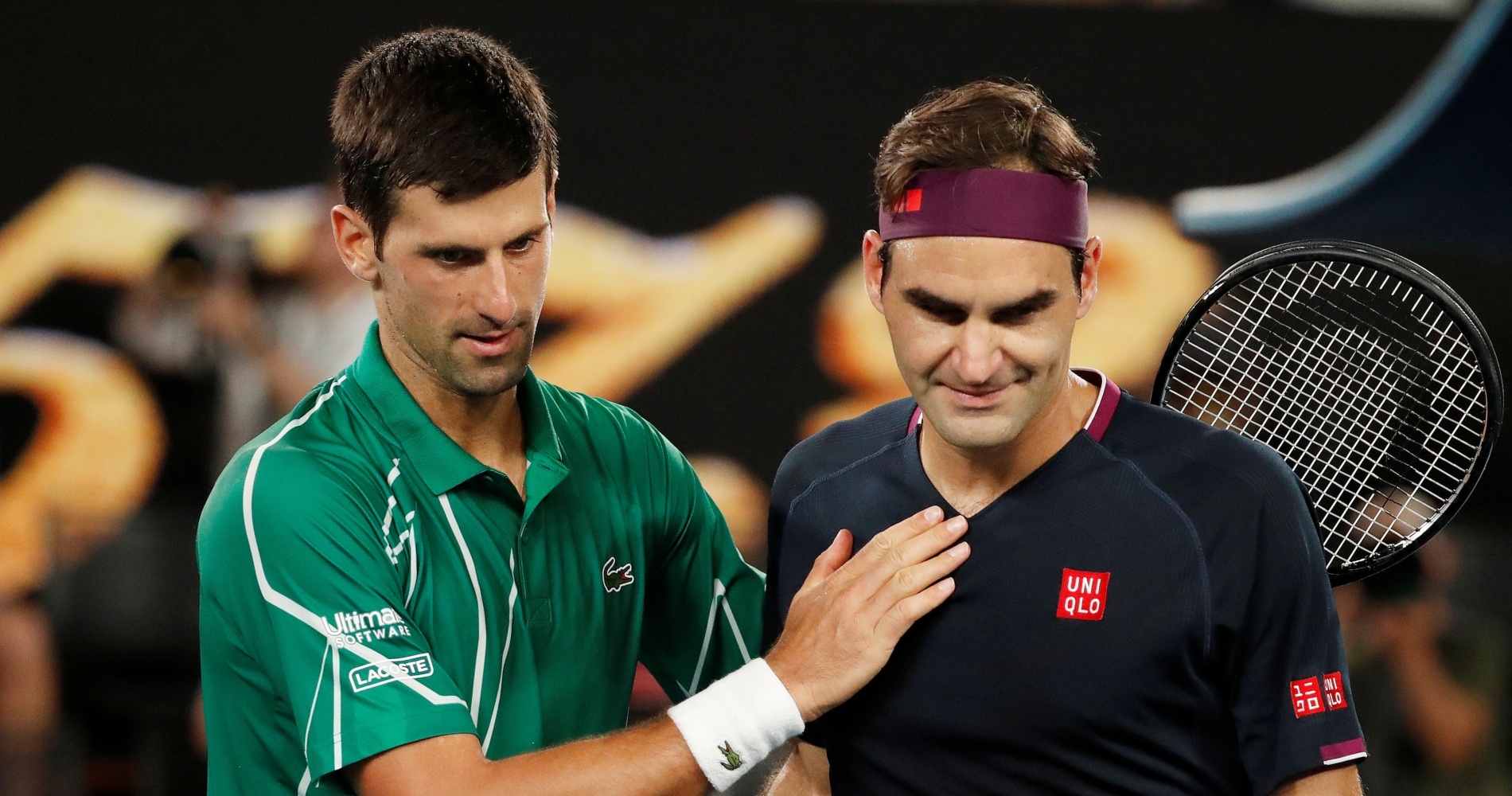
Never write off Federer
Roger Federer will come back to the court soon in Doha, do you think that he can reach his old heights after such a long break?
I have played against Federer and I have coached against Federer. One thing I have learned is that you should never write him off, so I won’t do it now. He is always dangerous, particularly at Wimbledon and to a lesser extent at the US Open. If he is playing, that means that he is ready and when he is ready, he is an extremely difficult opponent to have.
On March 8, Djokovic will officially become the male player with the most weeks at number one in the world (311). How important is that achievement in that Big Three contest?
Everything is important between the three of them. I mean – 311 weeks and more, it is fascinating. Novak has won everything that he could have won and the end of his career is not yet in sight. The GOAT debate comes down to taste and preferences, but if you have the numbers on your side, it is hard to deny some things… For me, Novak is the best and most complete player ever, for someone else it is Nadal or Federer. It will be an interesting topic to discuss when their careers are over.
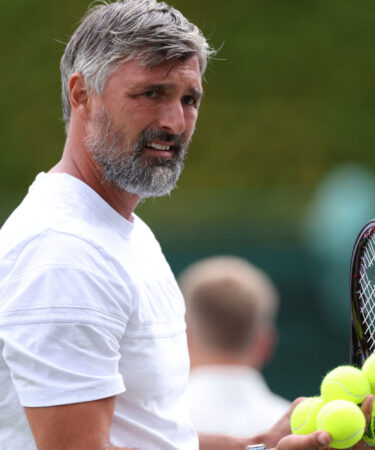
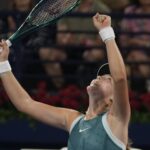
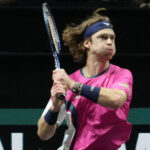
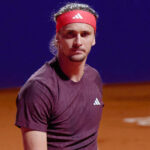
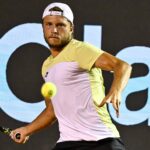
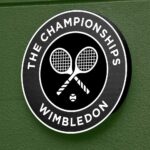
What’s up it’s me, I am also visiting this web page on a regular basis, this site is genuinely fastidious and
the people are really sharing fastidious thoughts.
Wow, what an amazing interview with one of my favourite players! ‘It was my destiny!’. It is high time that someone defended Novak and called the hatred out for what it is. He’s from the Balkans, for some reason there is a distinct aversion for a major part of the media (Goran experienced it himself during his career). Novak, for me, is the most complete player too. His range, his defence, his offence, now the serve is there too. He is the fairest, always concedes a point if he knows it wasn’t a fault. He does so much and all people throw at him is that ‘he’s trying to be liked’. Don’t we all want to be liked? He does what he does for what he cares about. Thank you, Goran, for saying it how it is. The Fedal aspect will never like Novak, but to try and poison everyone toward him is frankly disappointing for intelligent people.